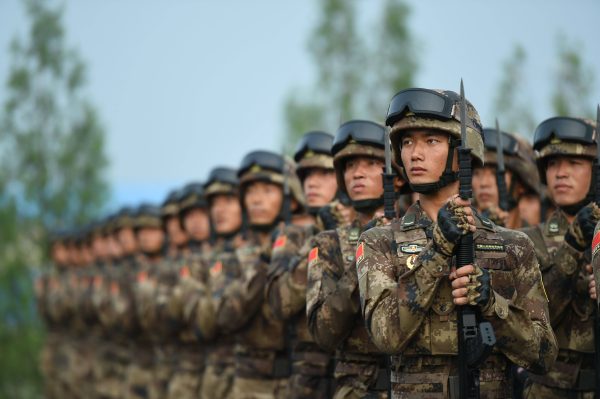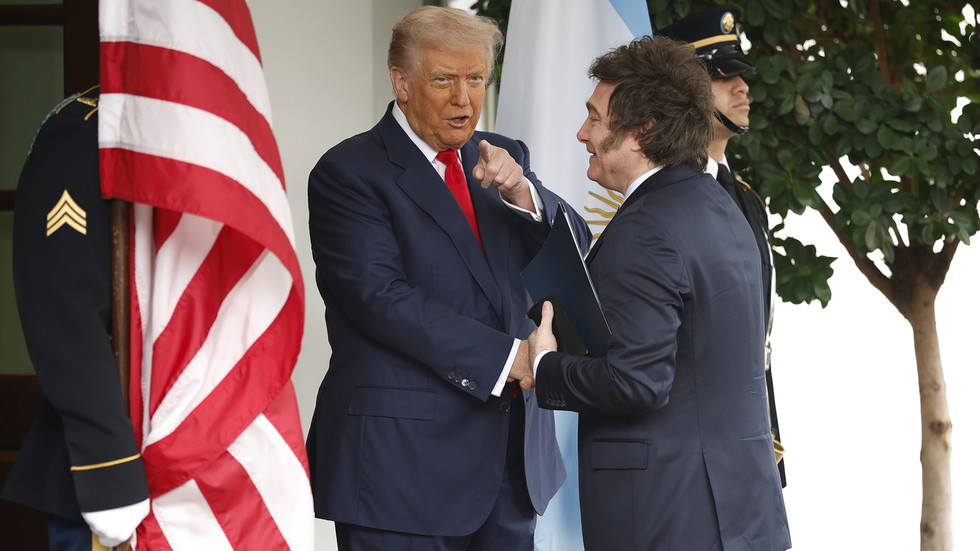Copyright thediplomat

The aftermath of Chinese leader Xi Jinping’s purges created a special phenomenon at the recently concluded Fourth Plenum. Attendance at such a critical Chinese Communist Party (CCP) gathering is mandatory, yet 37 Central Committee members were absent. Of these, ten were civilian officials and 27 were military officers. Nine senior People’s Liberation Army (PLA) officers had already been stripped of their ranks and expelled from the CCP ahead of the plenum. Although there have been no official explanations for the absence of the remaining 18 senior officers, it is quite likely that they are under investigation by the Central Military Commission’s (CMC) Discipline Inspection Commission, led by Rocket Force General Zhang Shengmin, who has been promoted to the position of CMC vice chairman following the October 17 purge of his predecessor He Weidong. What does Zhang’s promotion tell us about the PLA, and what are his prospects for longevity as vice chairman? Insights from Zhang Shengmin’s Rise As previously forecasted, to replace He on the CMC, Xi Jinping chose someone defined by political reliability rather than military expertise or popularity among PLA officers. Born in 1958, Zhang joined the PLA at age 19. He served as a platoon commander for just one month in 1981, before being transferred to the political officer hierarchy of the Army. Thereafter, Zhang gradually rose through the ranks. By 2004, he had become the director of the Political Research Office under the PLA General Political Department. In June of that year, he was transferred to the Second Artillery Corps, the predecessor of today’s Rocket Force, as director of a political department at one of its bases. By mid-2010s, Xi identified Zhang as a CMC rising star and, in 2017, made him the secretary of the CMC Discipline Inspection Commission, in charge of monitoring and investigating corruption within the PLA. In essence, Zhang is a career political commissar with limited military expertise. While he’s a man of high status, PLA officers likely view him with fear rather than genuine admiration. But most importantly, in the past years, Zhang has earned Xi’s trust by fully carrying out his desires to purge the officer corps. During successive internal crackdowns, Zhang served as Xi’s right hand in targeting and detaining officers who had lost the leader’s confidence. In doing so, Zhang proved that he is loyal solely to Xi, especially during the 2023 Rocket Force purges, when Zhang had to go against leaders of the very service that he was part of for nearly 20 years, destroying the lives and careers of many old friends and associates. Likewise, Zhang did not hesitate when it was time to move against fellow CMC members. The downfall of former Defense Ministers Wei Fenghe and Li Shangfu, CMC Political Work Department Director Miao Hua, and CMC Vice Chairman He Weidong show that Zhang is unreservedly ready to serve at Xi’s behest. Zhang’s elevation to a CMC vice chairmanship therefore indicates that the PLA purges are far from over. On the contrary, given the new vice chairman’s “specialization,” the campaign of fear will continue with equal intensity. Still heading the CMC Discipline Inspection Commission, Zhang has gained more power and influence as he takes on the role of vice chairman. He knows that he was promoted primarily because of his performance during the purges. Thus, Zhang is likely going to operate with even greater zeal, fostering a climate of uncertainty among the officer corps – precisely what Xi desires, as he seeks to suppress all forms of disobedience and disloyalty among the military elite. Yet, the promotion of Zhang also reveals that Xi’s circle of confidants is getting smaller and smaller. Ordinarily, strongmen would seek to create balance within their decision-making councils, ensuring less powerful subordinates may offset more dominant figures, so no individual’s influence overwhelms that of the leader’s own. Moreover, as the nation’s highest defense decision-making organ, the CMC benefits from having diverse perspectives, making representation from all PLA services a necessity in fostering jointness at the top. However, the CMC as it stands today is deeply imbalanced, composed of an exceedingly powerful chairman (Xi), two highly influential vice chairmen (Zhang Youxia and the newly elevated Zhang Shengmin), and only one remaining regular member, PLA Chief of Staff Liu Zhenli. Zhang Youxia and Liu Zhenli both hail from the Army, while Zhang Shengmin comes from the Rocket Force. The Navy, Air Force, and newly created forces since the 2016 PLA reforms were not provided with a seat at the table. This lopsided configuration reflects Xi’s difficulty in finding ideal candidates, despite having had months to identify replacements for the purged CMC members. This gradually tightening circle of confidants underscores a sobering reality: the PLA commander-in-chief does not trust the majority of his own officers – an alarming sign for any military. Now, flanked by two powerful deputies, the CMC is almost functioning as a triumvirate, raising questions about how long this configuration can last and whether it benefits the PLA’s capabilities. Zhang’s ascendence to the third-highest position in the PLA represents the pinnacle of his career. But under the current political climate, one must be reminded that the higher one rises in the chain of command, the greater the personal risk. As a military leader who controls the levers of enormous power, Zhang’s prominence may eventually provoke Xi’s suspicions and qualms. It is almost certain that there are secret agents around Zhang monitoring his activities, yet even constant surveillance may not calm Xi’s persistent insecurity. It is possible that Xi and Zhang’s ties could disintegrate when the current purge cycle slows, with Zhang’s powers significantly reduced. Conclusion Zhang Shengmin’s elevation to CMC vice chairmanship is not unexpected. He is neither a military expert who could question Xi’s authority nor a widely admired general among the officer corps. Rather, Zhang is a career political commissar who earned Xi’s confidence by wholeheartedly carrying out the PLA purges. His promotion therefore confirms that the purges are here to stay. At the same time, it also reveals that Xi’s circle of intimates is steadily contracting, resulting in a CMC marked by unequal power distribution and a shortage of professional military voices outside the Army and Rocket Force. While the best-case scenario for Zhang’s vice chairman tenure is that he stays on even after the 21st Party Congress in 2027 and continue to assist Xi as a loyal enforcer, the likely scenario is that he will step down in a few years to be replaced by a deputy. However, there is also the worst-case scenario that Zhang could lose Xi’s favor and be sidelined at the peak of his career. This is not unimaginable given how Xi dealt with Wang Qishan, who oversaw the civilian anti-corruption campaign from 2012 to 2017 that incapacitated Xi’s rival factions. Whatever the case may be, Zhang Shengmin is set to be a central figure in PLA politics for the foreseeable future, and his “talents” are likely to cause greater consternations within the PLA’s elite core.



